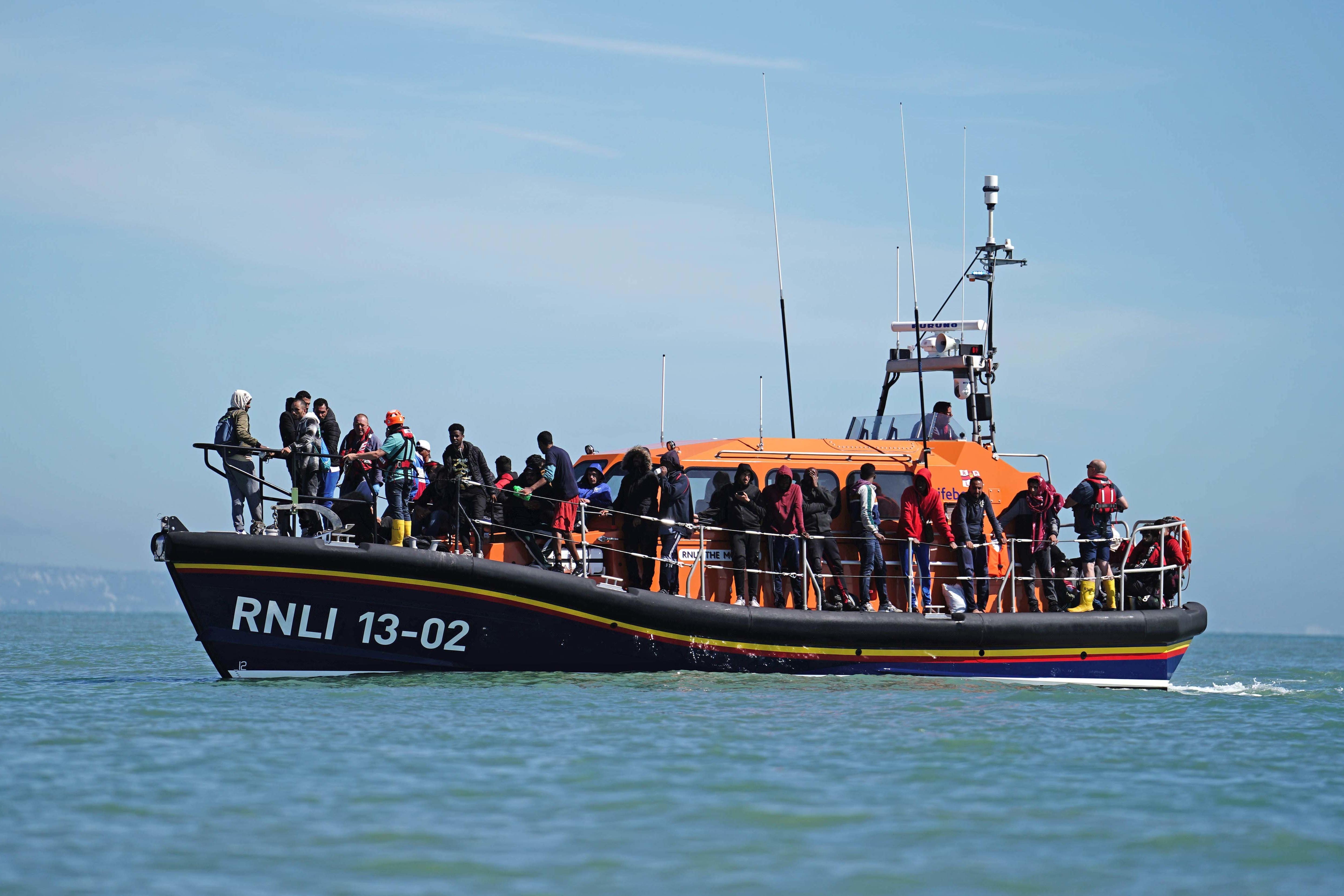Three-quarters of small boat arrivals would be granted asylum, study suggests
The Refugee Council says the Government’s own figures counter the narrative that most people crossing the Channel do not require protection.

Your support helps us to tell the story
From reproductive rights to climate change to Big Tech, The Independent is on the ground when the story is developing. Whether it's investigating the financials of Elon Musk's pro-Trump PAC or producing our latest documentary, 'The A Word', which shines a light on the American women fighting for reproductive rights, we know how important it is to parse out the facts from the messaging.
At such a critical moment in US history, we need reporters on the ground. Your donation allows us to keep sending journalists to speak to both sides of the story.
The Independent is trusted by Americans across the entire political spectrum. And unlike many other quality news outlets, we choose not to lock Americans out of our reporting and analysis with paywalls. We believe quality journalism should be available to everyone, paid for by those who can afford it.
Your support makes all the difference.Three-quarters of people who have crossed the Channel on small boats this year would be recognised as refugees if their application had been processed, analysis of Government figures suggests.
The study by the Refugee Council also found that once the Illegal Migration Act is fully enforced, as few as 3.5% of people arriving would be returned to their home countries every year, while thousands of remaining migrants would be left in limbo and could “disappear” into destitution on the margins of society.
The Act, hailed by the Government as key to deterring small boat crossings, became law on July 20.
But there is currently no timeline for the implementation of the legislation’s main elements, including the duty to remove people deemed to have arrived in the UK illegally and block them from making asylum claims.
In a challenge to ministers’ claims that a majority of people crossing the Channel are not in genuine need of protection, the report found a large majority of arrivals would be granted asylum in normal circumstances.
When the Government’s breakdown of the nationality of those arriving on small boats up to September this year is assessed alongside current rates of asylum approval for people from individual countries, this suggests 74% of those who have crossed the Channel this year – or 14,648 people – would be granted asylum if their applications were processed.
When this is applied to citizens of individual nations, 100% of Eritreans, 99% of Syrians and 97% of Afghans would have had their applications approved.
Overall, more than half of the arrivals this year came from countries with high rates of asylum approval.
The analysis also shows that the 20% reduction in the number of Channel crossings so far this year has been driven by the reduction in Albanians arriving since the UK secured a returns agreement with the country.
The number of Albanians arriving on small boats fell from 35% between January and August 2022 to 3% over the same period this year.
However, there was a 19% rise in people from other nations crossing the Channel in the first eight months of 2023, an increase from 16,275 last year to 19,441.
This includes an almost five-fold increase in the number of people arriving from India in 2023, while arrivals from Turkey and Vietnam have more than tripled.
The Refugee Council said its analysis shows the “human and financial costs” of the Illegal Migration Act when it is implemented in full.
Under the Act, if someone has claimed asylum they can only be removed to their country of origin if they are from one of the 27 member states of the European Union or Iceland, Liechtenstein, Norway, Switzerland and Albania. Removals of other nationals must be made to a safe third country.
Only 660 of the 19,441 people who crossed the Channel this year and declared their nationality could be transferred to their home country. These arrivals all came from Albania.
The Refugee Council estimates that if the profile of nationalities arriving on small boats remains similar when the Illegal Migration Act is fully enforced, only 3.5% of arrivals each year would be able to be removed from the UK to their country of origin.
In the absence of functioning safe third country agreements and with the Rwanda scheme still the focus of a legal action, the remaining arrivals – estimated to be up to 35,409 a year – would be “stuck in permanent limbo, unable to get on with their lives”.
Closing down the asylum system will simply result in vast cost, chaos and human misery with tens of thousands of people stuck in permanent limbo, likely to disappear into the margins of our communities, at risk of destitution, exploitation and abuse
Even with a third country agreement involving 10,000 arrivals a year being transferred from the UK, tens of thousands of people from nations with current high rates of asylum approval would fall foul of the “shutting down asylum decision making” caused by the new legislation, the report said.
It added: “Organisations working with people in the asylum system and local authorities have told the Refugee Council they are seriously concerned about this and the impact it will have on very vulnerable people.”
Enver Solomon, chief operating officer of the Refugee Council, said the UK should not slam the door in the face of those who have faced atrocities such as torture, sexual coercion, slavery and exploitation.
He added: “Closing down the asylum system will simply result in vast cost, chaos and human misery with tens of thousands of people stuck in permanent limbo, likely to disappear into the margins of our communities, at risk of destitution, exploitation and abuse.”
The Home Office has been approached for comment.